BizTech Forward: Season 2 Recap: Unpopular Opinions
Season 2's most controversial moments! Eight tech leaders share their unpopular opinions on AI, recruitment, learning culture, market competition, and more. The honest hot takes from tech leaders who aren't afraid to challenge conventional wisdom.
Transcript
Anni Tabagua: Welcome to BizTech Forward, your go-to podcast for cutting-edge insights at the intersection of business and technology. Let's move forward together.
Episode 9: What Clients Expect from IT Vendors
Mike Peterson: I think my approach is trying to be sensible, trying to be levelheaded, and not get caught up in all the hype. You have to position yourself correctly. I've seen a billion people get left behind by not looking at where change is going. I've also seen a lot of people fail because they overcommitted to change.
You have to know what that balance is for upskilling. Where do you upskill? How do you get there? I think the "all-in rush" mentality ignores important considerations because people treat this as the new end-all, be-all. AI is certainly going to be significant in many places today, but you've got to approach it with measured steps and logical steps.
There's no miracle here in learning how to do these things. I think people who talk about how easy it is and what you can do with it, that's coupled with my whole pet peeve about everybody coming in to sound smart after they've gone to ChatGPT or something, got a bunch of information, and then spout like they know what they're talking about. You've got to be aware of that, and you've got to learn how to deal with that.
Then, you need to present a case or a story about what we really ought to do. Sometimes, in the hype cycle, it's hard to do this because people are so passionate about that change. But I think you're already seeing disillusionment in the money people have spent.
Episode 10: Learning & Development at Scale
Maryna Melnik: There is this painful and unpopular opinion: Learning and development is not just about creating self-paced courses and conducting traditional instructor-led training sessions. We're so much more than that. L&D is about helping businesses achieve their goals, and this help can take different shapes.
For example, it's about launching company-wide awareness campaigns to shift mindsets and behaviors. That's what we've been doing with our cloud initiatives—we arrange lots of activities, not typical learning activities, to encourage our colleagues to develop in this area and get certified.
Another example is that it's about developing leaders, but in unconventional ways. It's not just about arranging workshops or training. It's about coaching and mentoring the leaders. It's about collaboratively creating skill matrices and mapping out professional journeys that align with the wishes of our individual colleagues and the company’s needs.
It's about curating learning ecosystems where colleagues can find the right resources at the right time. It can be a webinar, it can be a post in our internal corporate social network, it can be a self-paced course, or a hands-on learning project – we have books, anything.
Sometimes it's also about explaining what L&D is and is not. It's also about saying no to training when we realize that the problem is not the lack of skills or knowledge, but it's deeper and it's something else. For instance, it's about broken communication, not the absence of communication, or poor business processes.
We're not just a training team; we're strategic partners, and we're here not just to teach. We're here to help the company grow, develop, and achieve its goals.
Episode 11: Latin America’s Tech Boom
Marcos Mauro: Sometimes I find myself having discussions with colleagues and people from the industry. Probably one huge misconception is that Latin America is just a place for outsourcing tech talent, getting developers by the kilo.
Outsourcing is indeed part of the story and definitely what took us to this place. There's a technology ladder that we have to climb, but we're no longer only serving people for other regions' projects. It's part of the story, and we do it, but the real narrative is about homegrown innovation.
The world needs to wake up to the fact that some of the most exciting developments in AI, fintech, and digital transformation are actually happening in the region, in Latin America.
Episode 12: Tech Talent Today and Tomorrow
Julia Zavileyskaya: I don't believe in AI in recruitment because I love AI—I love it as our assistant—but I don't rely on it to make decisions instead of us. I don't want to trust AI to match candidates to positions. I don't rely on AI analyzing technical interviews of candidates and providing feedback.
I still believe that people do it much, much better, with all my love for AI. I don't trust AI to make decisions on behalf of us.
Anni Tabagua: That's a great note to end on and to think about. I didn't even know that AI was used to make decisions and analyze technical interviews.
Julia Zavileyskaya: Yes, and I hope this changes in the market. Luckily, we have never done it ourselves. We have never used AI in this regard in our recruitment. Maybe because I don't believe in that, and luckily, our colleagues in recruitment are sometimes quite skeptical in this area as well.
Episode 13: From Stuffed Sharks to Data: The Evolution of Art Trade
Doron Fagelson: My view on collectors – my view on collector trust in institutions – is that, in general, that trust has been a bit in decline. I think what's happening is that collector trust is starting to move away from being centralized in institutions and among professionals, and more toward individuals and communities that have been formed around the internet and social networking platforms.
I think it's a trend toward a distributed trust model versus a centralized trust model, which I think is really quite fascinating. This is definitely affecting the business models of major market players that have, in the past, traditionally relied very much on really owning that collector trust, and how that collector trust has empowered their brands and driven their success.
Episode 14: Tech and Data Behind Your Next Trip
Greg Abbott: This will kill me for saying this, but it's the idea that there will be standards in our industry without regulation. I don't believe that we'll ever have standards—a unified way of exchanging data. I wish there were, but I'm a little pessimistic.
There are others who have been advocating for this for years, and there are groups that we participate in that are advocating standards. But I see that the standards are produced, companies have the option to follow them or not, and so often, even though the standards are there, they won't follow them. That makes it more difficult to create a unified environment for exchanging data, and it just makes extra work for everybody because there's no agreement on those standards. I don't believe standards will make it, but I hope to be proven wrong.
Anni Tabagua: Would you say that this is generally an unpopular opinion? My next question was going to be, "Hey, Greg, do you have any unpopular opinions on the topic?"
Greg Abbott: Yeah, I think it might be an unpopular opinion, or it might just be a realist opinion. I don't know, but that's the one thing I think has to be a government authority that comes in, regulates, and forces businesses to do something. I wish businesses would adopt standards on their own, but I think it has to be a regulatory thing.
I'm not saying, "Hey, we should regulate this industry," but I believe that when I've seen standards at play, it's because companies are forced to do something because of a particular rule or something that an administration comes in and enforces upon them. Because travel is unregulated, I think standards won't really persist.
Episode 15: It’s Not Just Delivery — It’s Partnership
Olesya Khokhulia: I think that everyone keeps saying, "market is saturated, market is saturated." That's why we can't do anything. For me, it just brings opportunity. I don't think that the market was ever not saturated. Believe me, even 20 years ago, when I started my career, there was always a sort of market saturation, and competition was always very high.
Looking at what happened 20 years back and now, it's comparable things in terms of complexity, competition, and everything. The industry is growing, and expectations are higher and higher. So I don't say that "the market is saturated", I never support such a message.
I always say, "Yes, everyone, you have to respect the competition. You have to be comfortable in this competitive environment." That's for sure—I can support that. But I can't say "the market is saturated and we can't do anything." It brings lots of opportunities. You have to just be brave in a way to understand what you're really doing, conservative in a good way, as I said, and professional. Then you will see just an opportunity, not some complexity that you can't overcome.
Episode 16: We Need to Talk About Data
Alexei Utkin: I think that before we see the next cycle where AI really works for data, for data engineering, for operations, where it really supports data quality governance and all the data-driven analytical use cases, I think before we get there, we will have at least another phase, one phase of disillusionment in terms of struggles with the new issues and challenges which are brought to the data world by AI itself.
It's similar to how ChatGPT and other large language models struggle a little bit with their training because they've been exposed to a lot of data generated by the models in the last two or three years. Content on the internet is largely produced with the help of AI, and this new content interferes with model training.
In this regard, I think we will see more and more of the risks and problems associated with AI-generated code that works here, and sometimes gives us anomalies and errors. With all this great potential, entropy and chaos will also grow until we make better use of AI to validate and deal with all these errors, anomalies, etc.
That's my prediction: AI adoption will still be a little bit harder before it gets better.
Anni Tabagua: Thanks for tuning into BizTech Forward. If you enjoyed the podcast, please subscribe and share to help us reach more listeners. Thank you for being part of the conversation. See you next time.
Check Out All of Our Episodes

AI is supposed to be revolutionizing retail. Personalized recommendations, seamless checkout, virtual try-ons — the whole pitch. But if the technology is so good, why are physical stores still packed?

In this episode, Anni sits down with Alistair Wandesforde, SVP at DataArt, to see what companies say about their AI capabilities and what's really happening on the ground.

Season 2's most controversial moments! Eight tech leaders share their unpopular opinions on AI, recruitment, learning culture, market competition, and more.

We wrap up Season 2 with episodes 13-16! Featuring Doron Fagelson's fascinating look at how data is transforming art commerce, Greg Abbott's insights on the tech behind your next trip, Olesya Khokhulia on enterprise partnerships beyond just delivery, and Alexey Utkin's brutally honest conversation about data reality.

Join host Anni Tabagua for a Season 2 recap covering episodes 9-12! Featuring discussions on evolving client expectations, scaling learning culture, Latin America's tech boom, and the current state of tech talent.
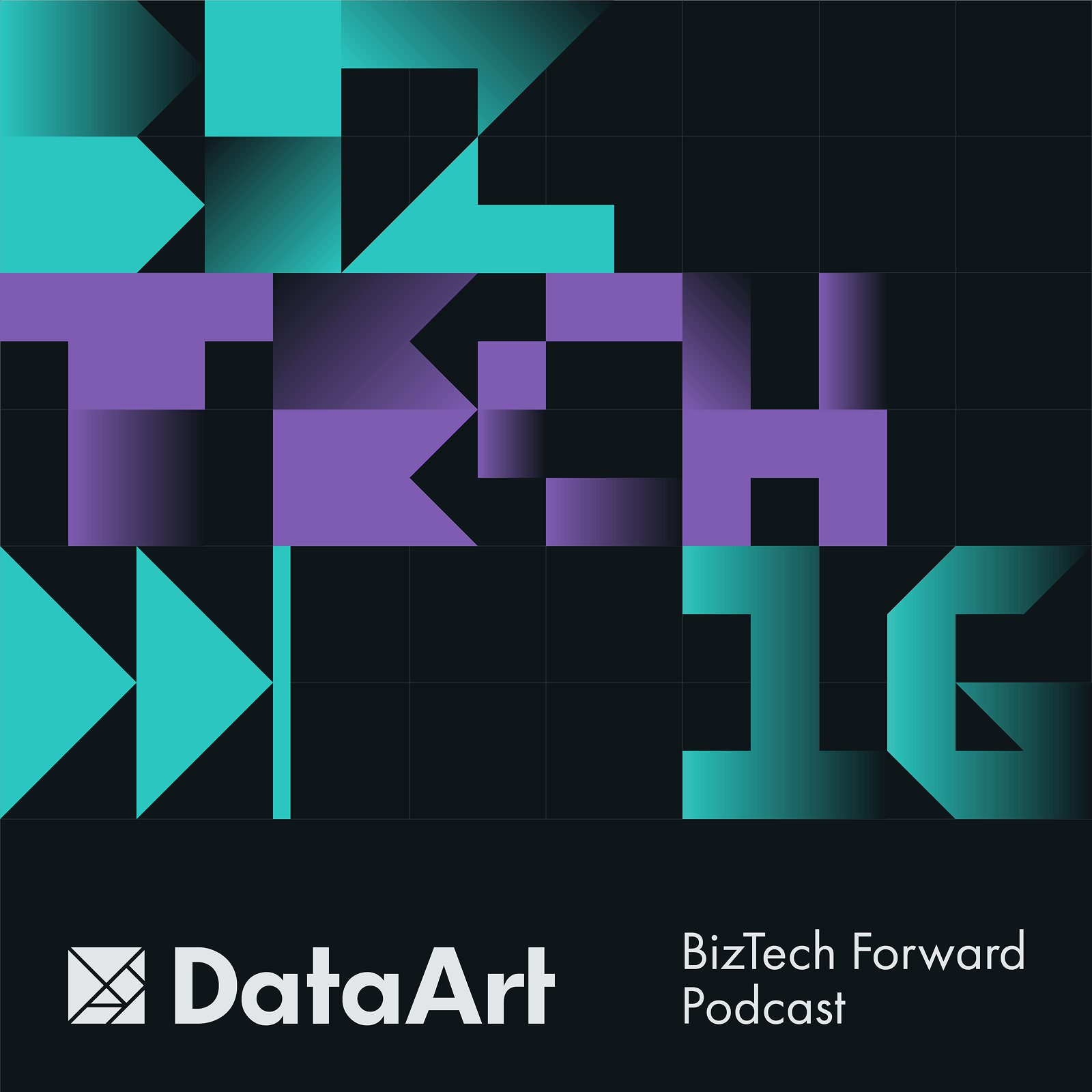
In this episode, Anni sits down with Alexey Utkin, Head of Data and Analytics Lab at DataArt, for a candid conversation about what’s really going on in the world of data.
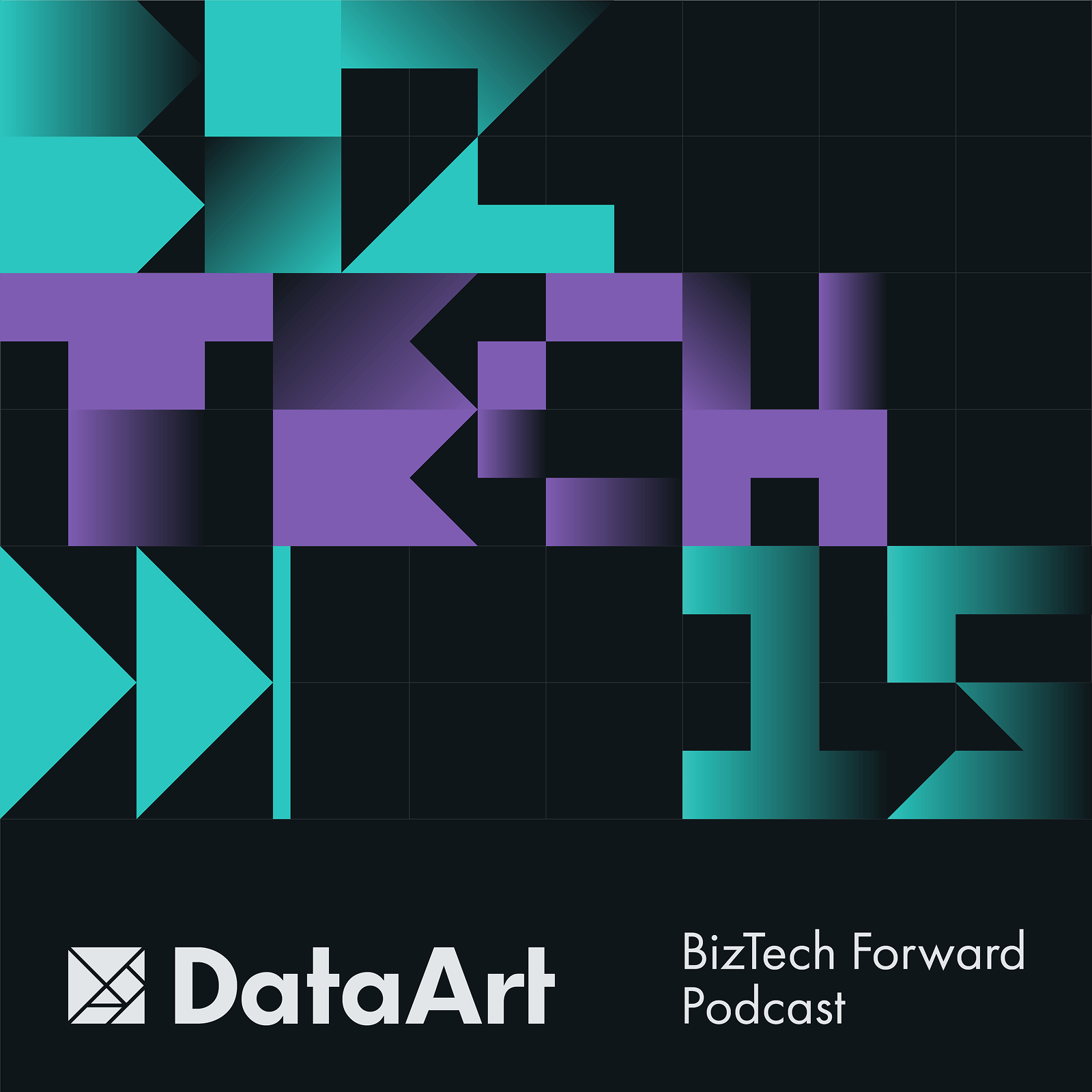
In this episode, Anni speaks with Olesya Khokhulia, VP of Global Enterprise Accounts at DataArt, about the evolution of client relationships, the quiet signals that build trust, and what it takes to stay relevant in an environment where expectations are always shifting.
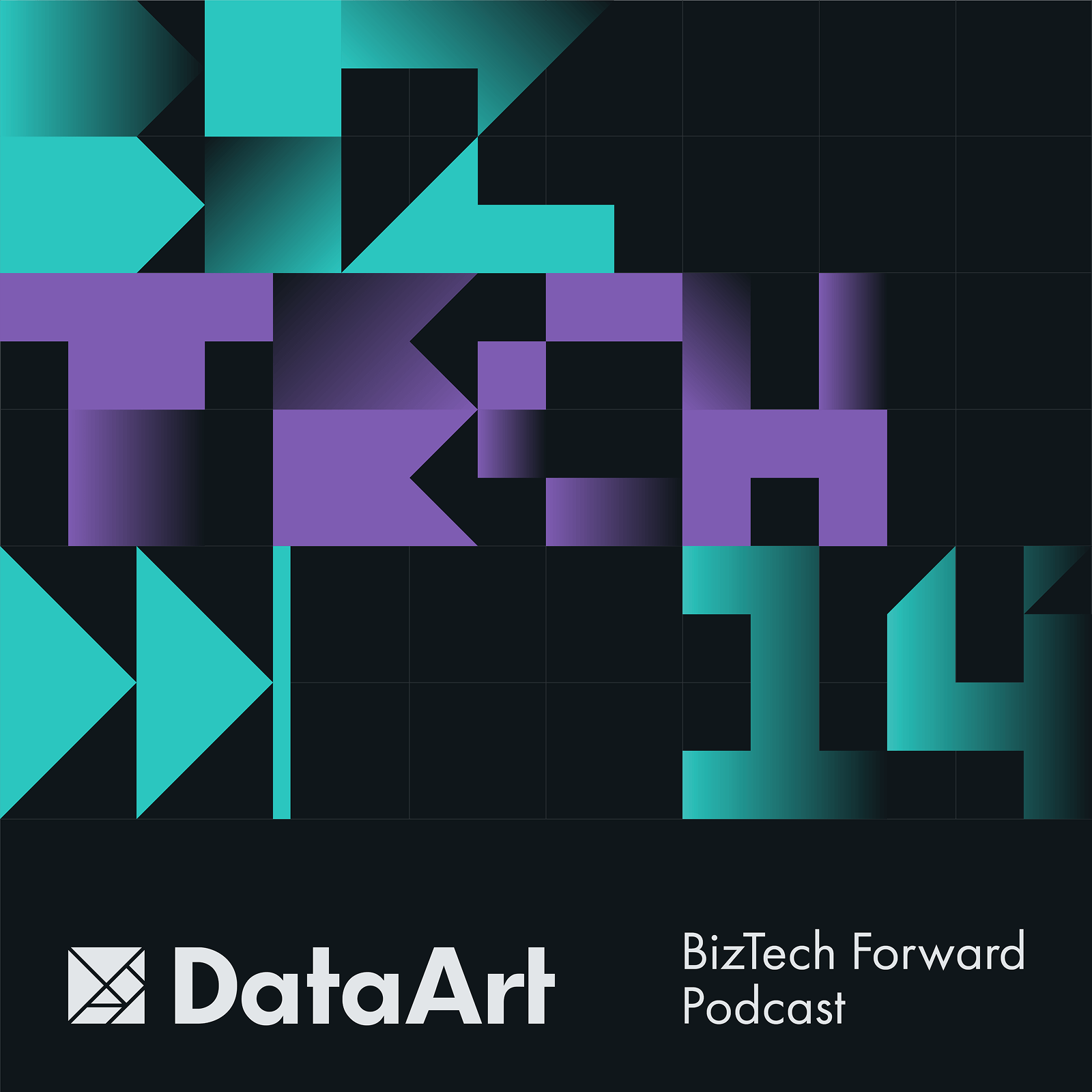
Travel is back — but it’s not the same. In this episode, we sit down with Greg Abbott, a veteran of the travel tech world with over three decades of experience, to talk about how the industry is evolving.

From ancient artifacts to AI-curated collections—art is evolving, and fast. In this episode, host Anni chats with Doron Fagelson, SVP of Media & Entertainment at DataArt, to explore how technology is transforming the art world, from online marketplaces to data-driven personalization and virtual galleries.

In this episode, host Anni chats with Julia Zavileyskaya, Chief People Officer at DataArt, about the biggest hiring trends, AI’s role in recruitment, and what really keeps employees engaged." Please find the episode's cover attached.
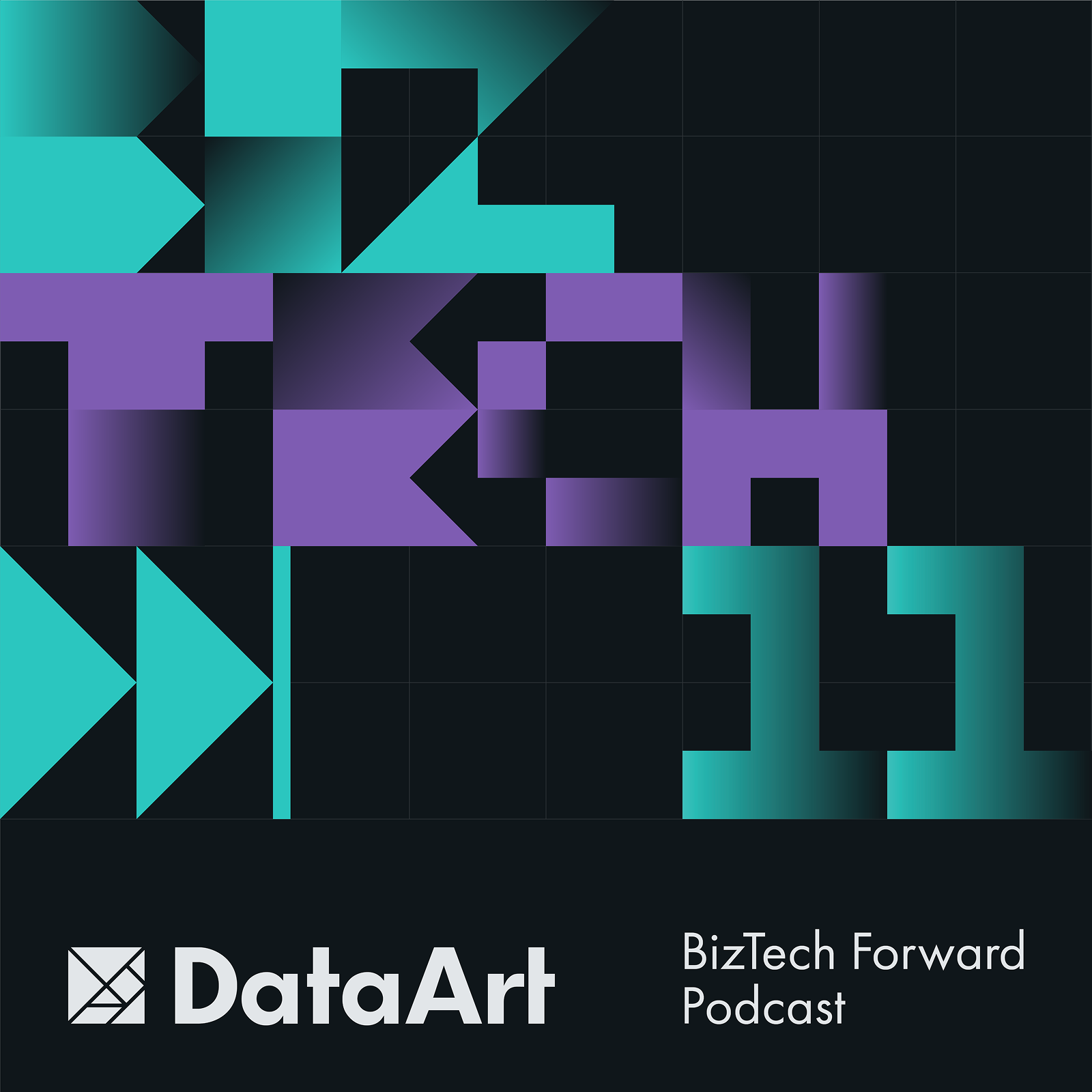
In this episode, Anni sits down with Marcos Mauro to discuss what’s fueling Latin America’s tech boom, how businesses and clients are adapting, and why it’s more than just an emerging market — it’s a global leader in the making.
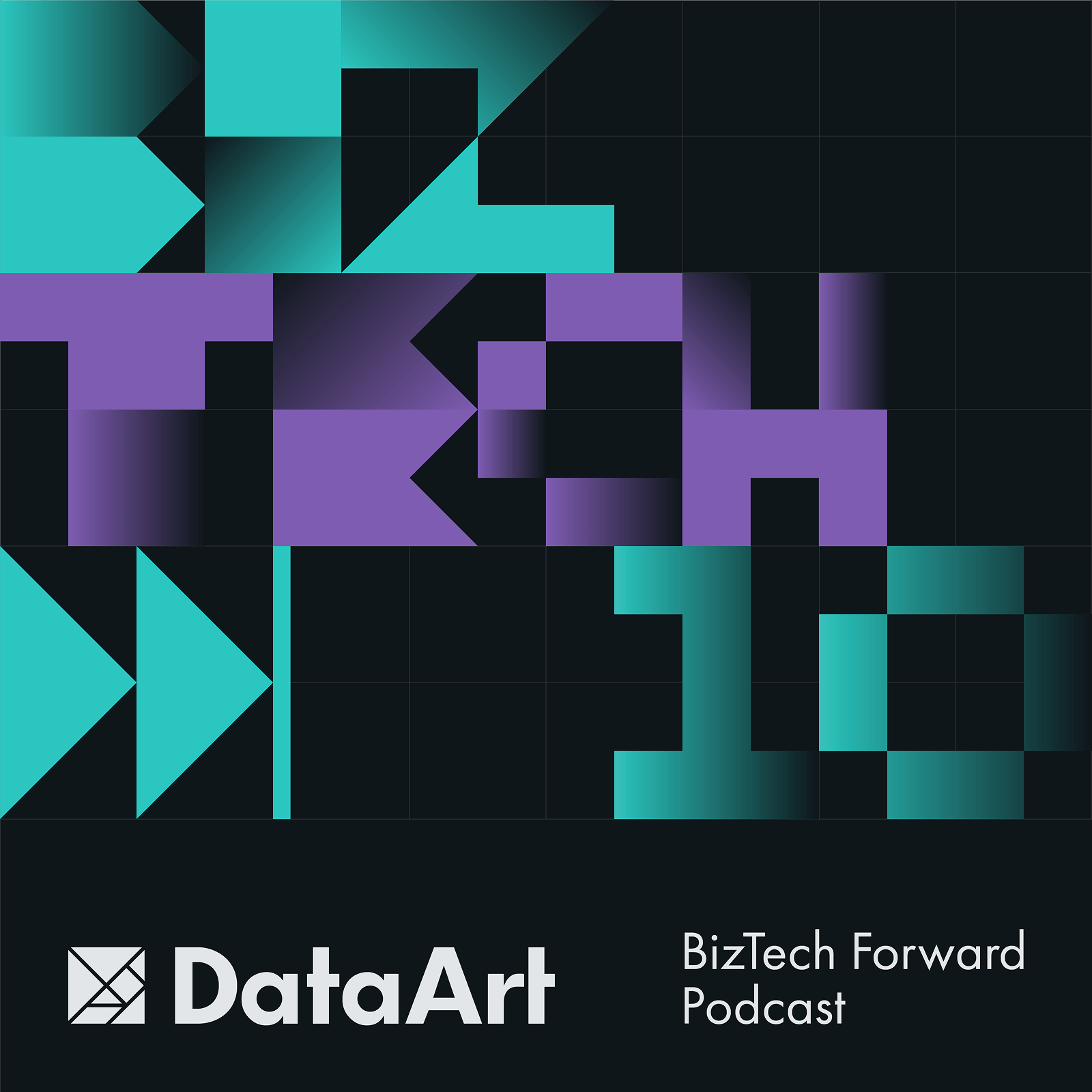
In this episode of BizTech Forward, Anni chats with Maryna Melink, Head of Learning and Development at DataArt, about how companies can create a culture of continuous learning, scale it across thousands of people, and deliver real business value.
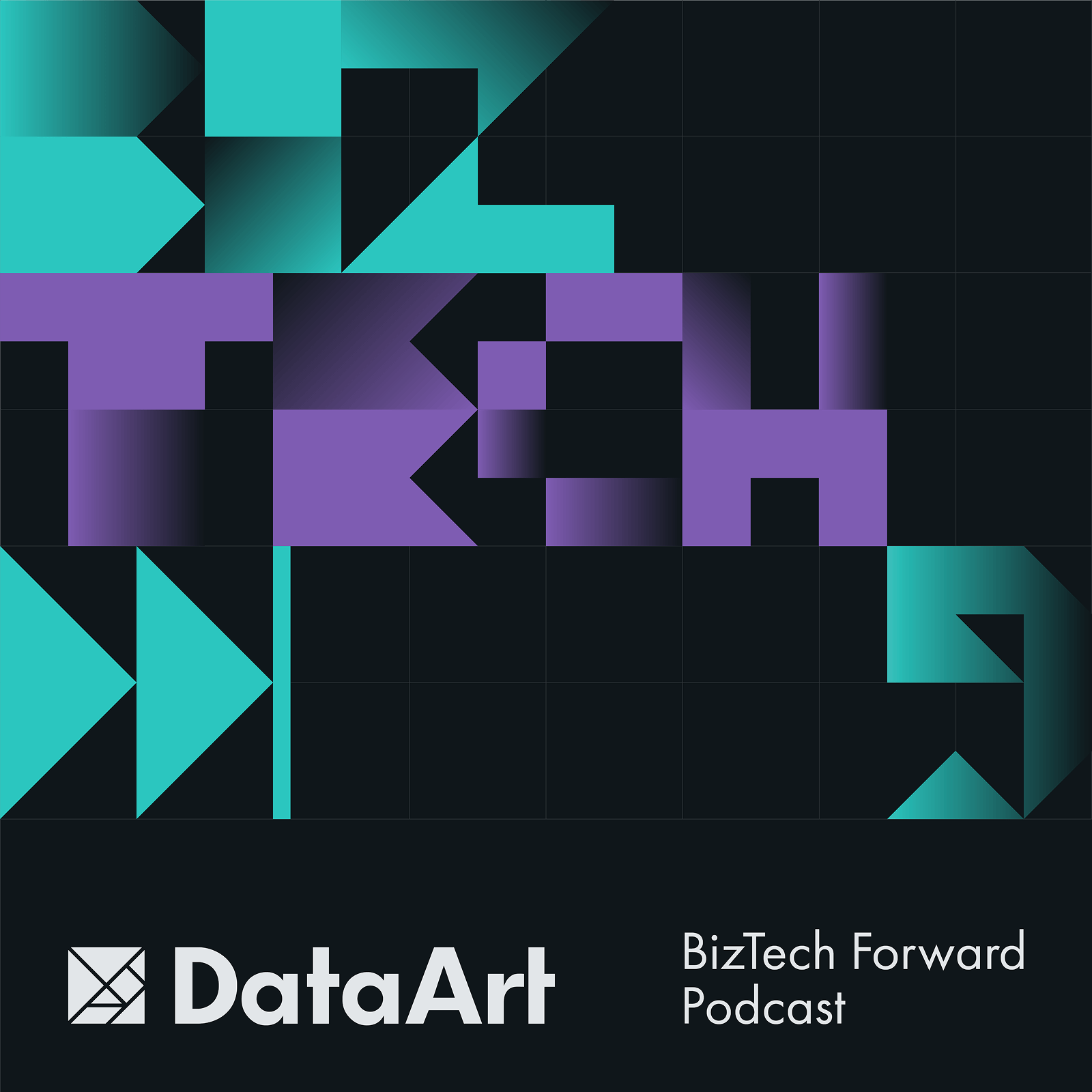
In this episode of BizTech Forward, Anni sits down with Mike Peterson, Advisory CTO / CIO, Mentor, and Coach, who discusses how client expectations from IT vendors have evolved over the past decade, what clients miss from the ‘old days,’ and how vendors can stay ahead in an ever-changing tech landscape.

This is a bonus episode of BizTech Forward: Season One Recap. Host Anni takes you through the eight episodes of the debut season, highlighting some of the best moments and setting the stage for season two!

In this episode of BizTech Forward, Anni chats with Scott Rayburn, VP Marketing at DataArt, about how marketing has evolved with the rise of data and technology.

In this episode, Anni chats with Sheetal Kale, Head of DataArt India, about the country’s modern tech views, AI and data, IPO boom, and India’s gravitational pull in global decision-making.

In this episode, we're joined by Tim McMullen, a true veteran in aviation tech, to discuss the latest aviation technology trends from the latest industry conferences and the future of aviation.
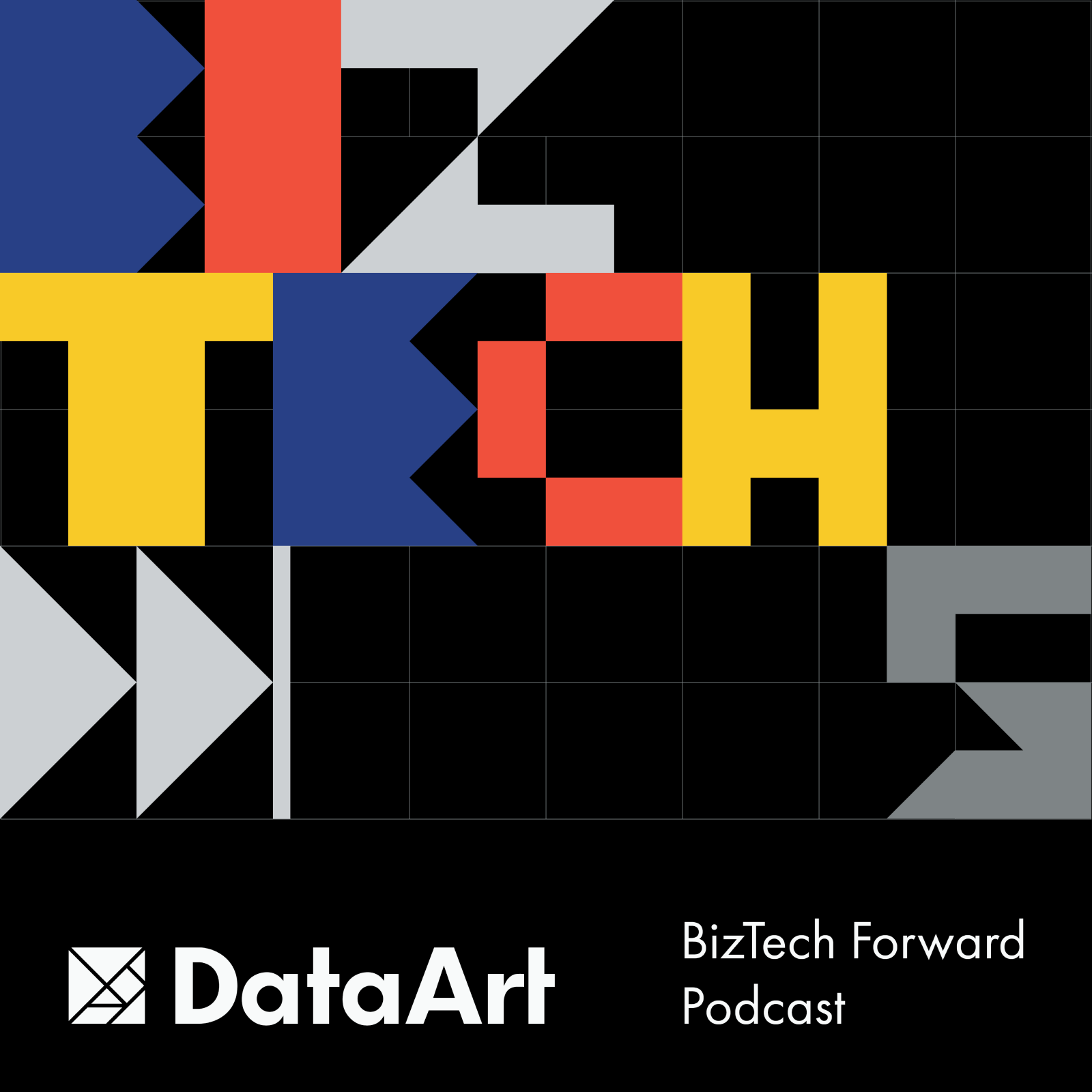
In this episode of BizTech Forward, Anni sits down with Anastasia Rezhepp, DataArt's Head of Design Studio, to talk about the evolution of design processes in the world of UX.
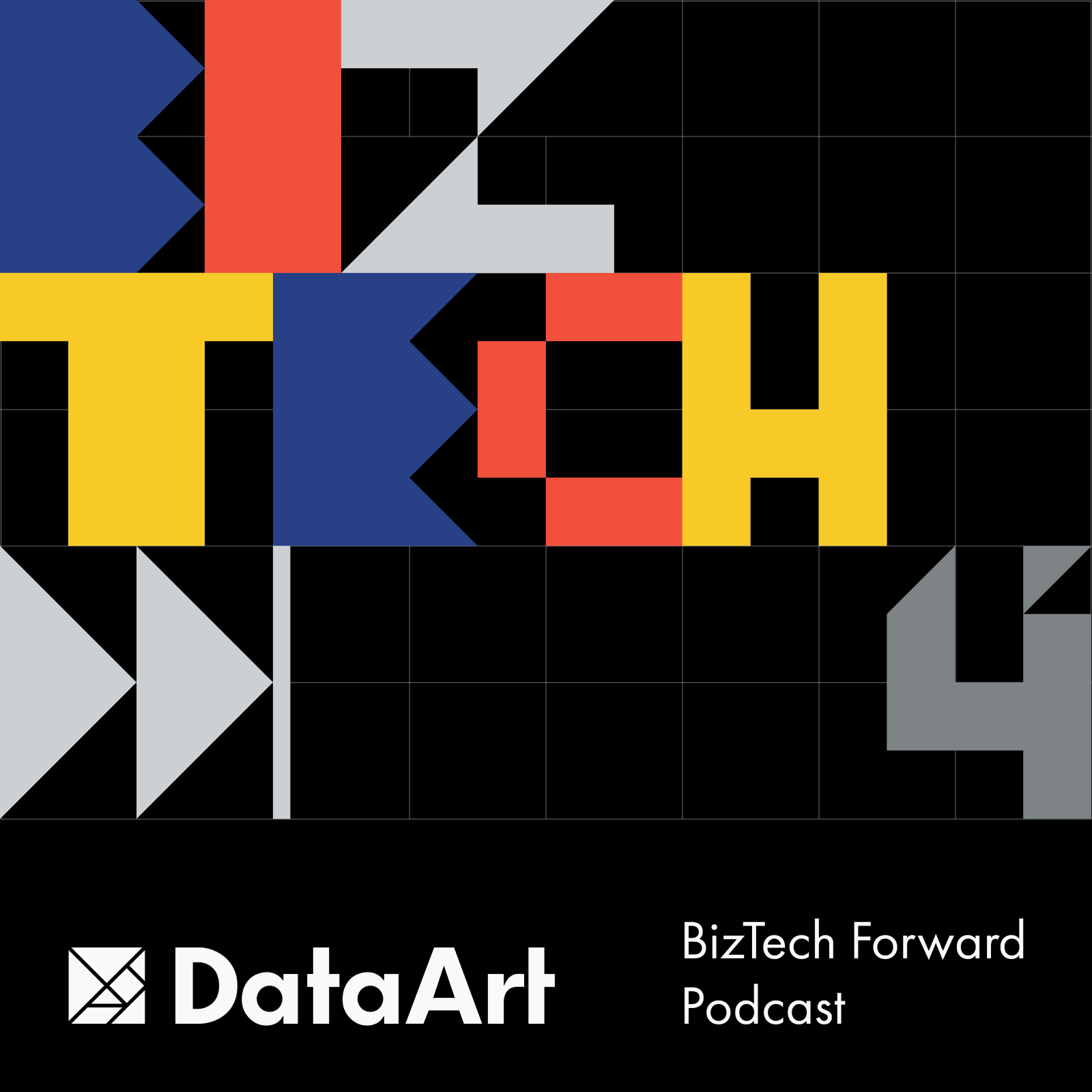
In this episode of BizTech Forward, we chat with Yuri Gubin, Chief Innovation Officer at DataArt, about why data quality is critical for AI success.

In this episode, we chat with Anna Velykoivanenko, Global Employer Branding Director at DataArt, about the perfect blend of technical know-how and human-centric skills.

In this episode of BizTech Forward, Anni from DataArt’s Media Relations team chats with Alexei Miller, Managing Director at DataArt, about how businesses can truly measure the value of their IT investments.
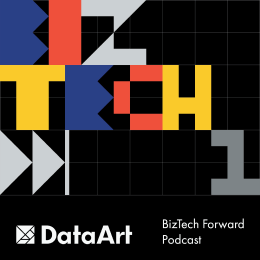
Join Anni Tabagua as we kick off our very first episode with a fascinating topic: AI in Automotive. Our guest is Dmitry Bagrov, the Managing Director of DataArt UK!
We Want to Hear From You!
Reach out to us with any comments, feedback, and questions by filling out the form.

Thank you for contacting us!
We will be in touch shortly to continue the conversation.






